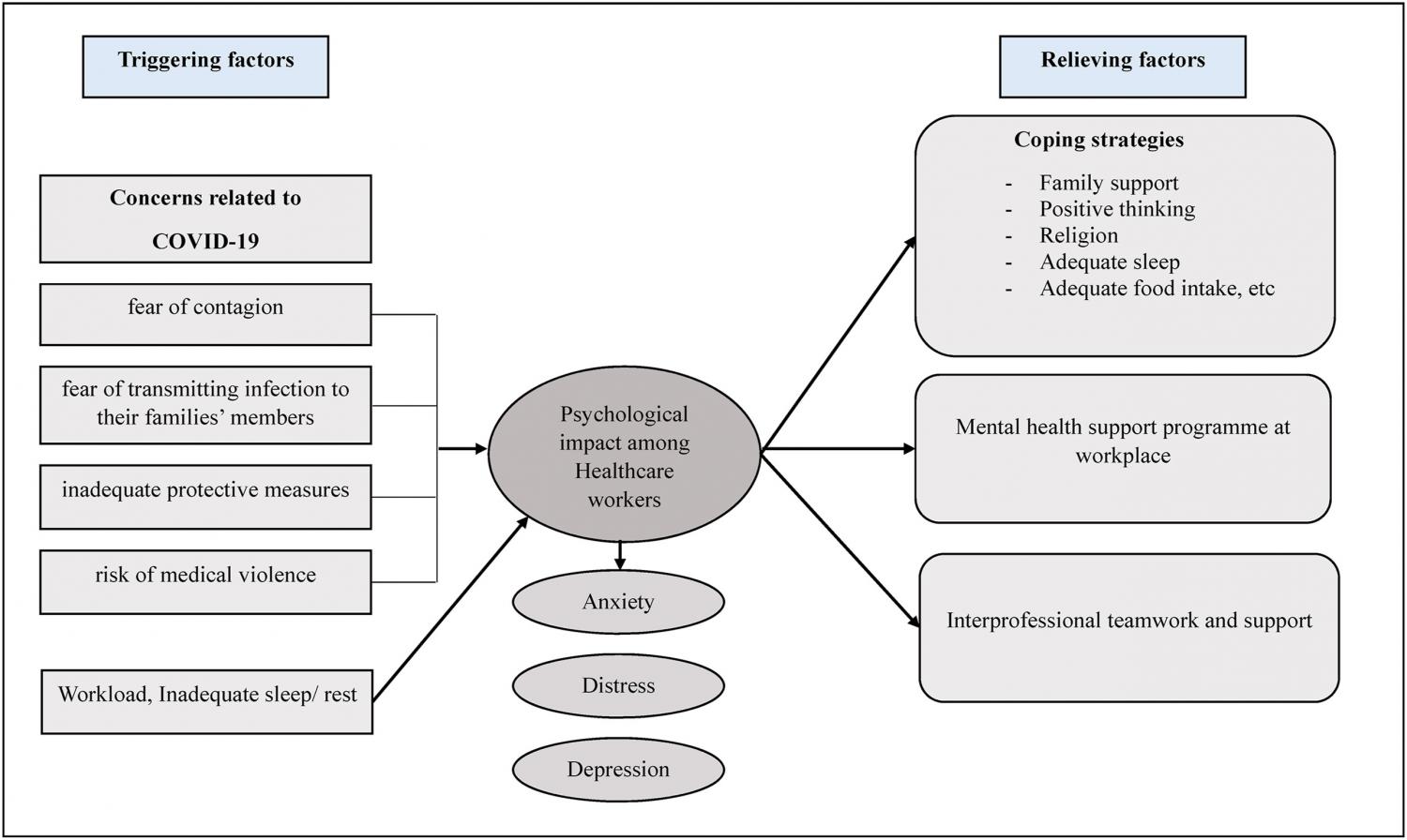Resilience Amid Pandemic Challenges

Introduction
In the face of unprecedented challenges posed by the ongoing pandemic, individuals and communities worldwide have been compelled to develop resilient coping mechanisms. This article explores various strategies and approaches to coping with the myriad challenges brought about by the pandemic, emphasizing the importance of adaptability, self-care, and community support.
Adapting to a New Normal
One of the primary challenges of the pandemic has been adapting to a new normal characterized by social distancing, remote work, and changes in daily routines. Coping with pandemic challenges involves embracing adaptability, acknowledging that flexibility and resilience are key to navigating the uncertainties of this ever-evolving situation.
Prioritizing Mental Health and Well-being
The pandemic has taken a toll on mental health, with increased stress, anxiety, and feelings of isolation. Coping strategies must prioritize mental health and well-being. This involves seeking professional support when needed, practicing mindfulness and self-care, and fostering connections with others to combat the negative impact on mental health.
Establishing Healthy Daily Routines
Creating and maintaining healthy daily routines is essential for coping with the disruptions caused by the pandemic. Structuring the day with a balance of work, leisure, and self-care activities contributes to a sense of normalcy and stability. Consistent routines help individuals regain a sense of control amidst uncertainty.
Cultivating Supportive Relationships
Social connections play a crucial role in coping with pandemic challenges. Cultivating and maintaining supportive relationships, even if through virtual means, provides a sense of community and shared experiences. Whether through video calls, online forums, or safely distanced interactions, staying connected is integral to emotional well-being.
Embracing Technology for Connection
Technology has been a lifeline for many during the pandemic, facilitating communication and connection. Coping strategies include embracing technology to stay connected with loved ones, colleagues, and support networks. Virtual gatherings, online events, and collaborative platforms offer opportunities for maintaining a sense of community.
Practicing Self-Compassion
The uncertainty and disruptions caused by the pandemic can lead to heightened self-criticism and stress. Coping involves practicing self-compassion, acknowledging that it’s okay not to be perfect and allowing oneself grace during challenging times. This mindful approach to self-care fosters resilience and emotional well-being.
Engaging in Meaningful Activities
Coping with pandemic challenges involves engaging in meaningful activities that bring joy and purpose. Whether it’s pursuing hobbies, learning new skills, or contributing to community initiatives, finding purposeful activities enhances mental and emotional resilience. Meaningful pursuits act as a counterbalance to the stressors of the pandemic.
Balancing Information Consumption
The constant influx of pandemic-related information can contribute to anxiety and overwhelm. Coping strategies include balancing information consumption by staying informed through reliable sources while setting limits on media exposure. This measured approach helps individuals stay informed without becoming inundated with distressing news.
Contributing to Community Resilience
Building community resilience is a collective effort. Coping with pandemic challenges involves contributing to community well-being through acts of kindness, support for vulnerable populations, and participation in local initiatives. Strengthening community bonds creates a sense of solidarity and shared responsibility.
Conclusion with Link
In conclusion, coping with pandemic challenges requires a holistic and adaptive approach. For further insights and resources on navigating these challenges, visit The Healthy Consumer website. Explore articles, tips, and community support to enhance your coping strategies and foster resilience in the face of pandemic-related difficulties.
Navigating Pandemic Challenges: Essential Response Tips

Strategies for Navigating Pandemic Challenges: Essential Response Tips
The ongoing pandemic has thrust individuals and communities into unprecedented circumstances, demanding thoughtful and effective responses. In this article, we explore key tips for navigating the challenges presented by the pandemic and maintaining resilience.
Staying Informed: The Cornerstone of Effective Response
In the face of rapidly evolving circumstances, staying informed is crucial. Regularly check reliable sources for updates on the pandemic’s status, health guidelines, and government recommendations. An informed approach forms the basis for making sound decisions and taking proactive measures to protect oneself and others.
Prioritizing Personal Health: A Foundation for Resilience
One of the most fundamental response tips is to prioritize personal health. This includes adhering to recommended hygiene practices, maintaining a nutritious diet, staying physically active, and getting sufficient sleep. Strengthening individual health is a proactive measure that contributes to overall resilience in the face of the pandemic.
Adapting to Remote Work: Navigating the New Normal
For those whose work allows it, adapting to remote work has become a significant aspect of pandemic response. Establishing a dedicated workspace, maintaining a routine, and utilizing collaboration tools effectively are key elements for a successful transition to remote work. Balancing professional and personal life becomes essential in this new normal.
Embracing Technology for Connection: Overcoming Social Distancing
While physical distancing is crucial for public health, maintaining social connections is equally important. Embrace technology to stay connected with friends, family, and colleagues. Virtual gatherings, video calls, and online activities can help alleviate feelings of isolation and foster a sense of community during these challenging times.
Financial Planning and Budgeting: Building Financial Resilience
The economic impact of the pandemic underscores the importance of financial planning. Assess your financial situation, create a budget, and prioritize essential expenses. Building financial resilience involves exploring opportunities for saving, identifying potential sources of support, and adapting spending habits to navigate economic uncertainties.
Caring for Mental Well-being: Seeking Support and Coping Strategies
The pandemic has brought about heightened stress and anxiety. Prioritize mental well-being by seeking support when needed. This may involve talking to friends, family, or mental health professionals. Additionally, incorporate stress-reducing activities into your routine, such as mindfulness, exercise, or hobbies.
Community Engagement: Supporting and Being Supported
Communities play a crucial role in pandemic response. Look for opportunities to support local businesses, volunteer, or contribute to community initiatives. Engaging with your community fosters a sense of solidarity and provides mutual support during challenging times.
Flexible Planning for the Future: Anticipating and Adapting
Pandemic response involves flexible planning for an uncertain future. Anticipate potential challenges, but remain adaptable. Set realistic goals, reassess plans regularly, and be open to adjusting strategies based on evolving circumstances. Flexibility is a key attribute in navigating the dynamic nature of the pandemic.
Educational and Skill Development: Investing in Personal Growth
Use the time during the pandemic as an opportunity for personal growth and skill development. Online courses, virtual workshops, and self-directed learning can enhance your knowledge and skills. Investing in education not only contributes to personal development but also positions you for future opportunities.
Accessing Pandemic Response Tips: A Comprehensive Resource
For additional insights and resources on navigating the challenges of the pandemic, consider exploring Pandemic Response Tips. This centralized hub offers a wealth of information, practical tips, and support to help individuals and communities navigate the complexities of the ongoing pandemic with resilience and determination.




(501).jpg)

